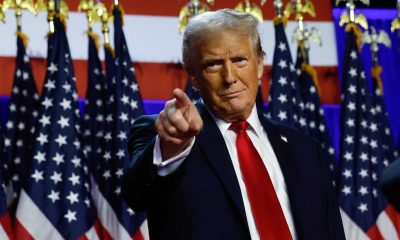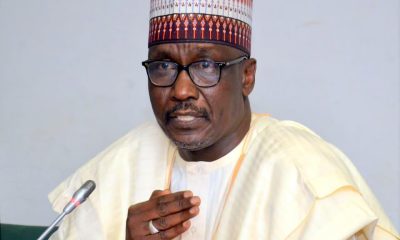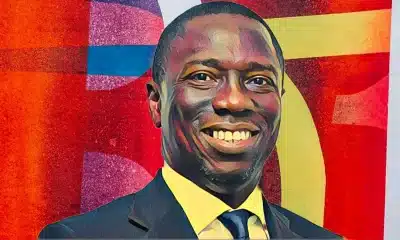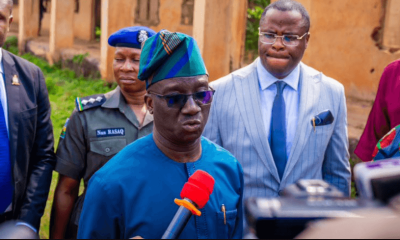Nigeria News
NSA Orders Clamp Down On Forex Speculators
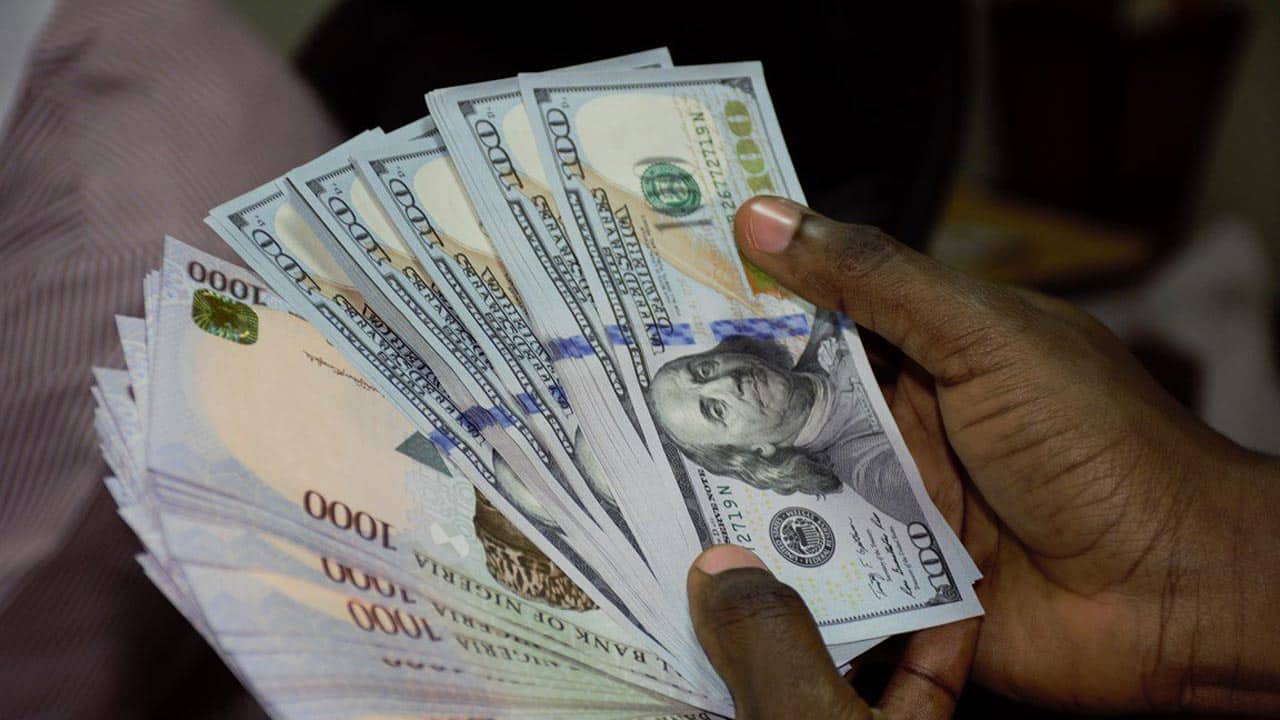
In a significant move to stabilize Nigeria’s foreign exchange market, National Security Adviser, Nuhu Ribadu has issued directives to key security and financial enforcement agencies to intensify actions against forex market speculators.
The Nigeria Police Force, the Economic and Financial Crimes Commission (EFCC), the Nigeria Customs Service, and the Nigeria Financial Intelligence Unit have been tasked with curbing the activities of domestic and international speculators operating through various channels.
The directive, communicated by Zakari Mijinyawa, the head of strategic communications in the Office of the National Security Adviser, in Abuja on Tuesday, represents a coordinated effort to protect the integrity of Nigeria’s foreign exchange market.
Ribadu’s intervention comes in response to ongoing challenges in the forex market, where speculative activities have significantly impacted the Central Bank of Nigeria’s (CBN) ability to manage the currency’s value and foster economic growth.
According to Ribadu, “some individuals and organisations had continued to undermine proactive measures of the CBN to stabilize the foreign exchange market and stimulate economic activities.”
This situation necessitated the need for a robust response from the security and financial regulatory agencies to ensure that the market operates in a fair and orderly manner.
Ribadu said, “In a concerted effort to safeguard Nigeria’s foreign exchange market and combat speculative activities, the Office of the National Security Adviser (ONSA) and the Central Bank of Nigeria (CBN) are joining forces to address challenges impacting the nation’s economic stability.
“The CBN’s proactive measures to stabilize the foreign exchange market and stimulate economic activities have been commendable.
“However, the effectiveness of these initiatives is being undermined by the activities of speculators, both domestic and international, operating through various channels, thereby exacerbating the depreciation of the Nigerian Naira and contributing to inflation and economic instability.
“Recall that, to address the exchange rate volatility, the CBN initiated a comprehensive strategy to enhance liquidity in the forex market, including unifying FX market segments, clearing outstanding FX obligations, introducing new operational mechanisms for Bureau De Change operators, enforcing the Net Open Position limit for commercial banks, and adjusting the remunerable Standing Deposit Facility cap.
“To reduce the pressure on the naira, the Economic and Financial Crimes Commission (EFCC) has raised a 7,000-man special task force across its 14 zonal commands to clamp down on dollar racketeers.
“Yet, recent intelligence reports have highlighted continued illicit activities within the Nigerian foreign exchange market, the ONSA and CBN are therefore embarking on this collaborative approach to tackle these infractions.
“This partnership will involve a coordinated effort with key law enforcement agencies, including the Nigeria Police Force (NPF), the Economic and Financial Crimes Commission (EFCC), the Nigeria Customs Service and the Nigeria Financial Intelligence Unit (NFIU).
“The primary objective of this alliance is to systematically identify, thoroughly investigate and appropriately penalize individuals and organizations involved in wrongful activities within the FX market.”
The NSA said by leveraging the expertise of those four security agencies, the government aimed at deterring what he described as “malicious practices”, to protect investors’ interest and promote sustainable economic growth.
He added, “This joint effort underscores the commitment of the Nigerian government to improving its Anti-Money Laundering and Counter Financing of Terrorism (AML/CFT) framework and exiting the grey list of the Financial Action Task Force.
“In addition, the efforts will make progress in ensuring a stable and transparent foreign exchange market, fostering investor confidence, and advancing the nation’s economic well-being.”
The Tinubu administration had liberalised the exchange rate, leading to the freefall of the naira.
The official exchange rate fell from N463.38/$ to over ₦1,500 to a dollar, while at the parallel market, the naira is now above ₦1,700 to a dollar.



